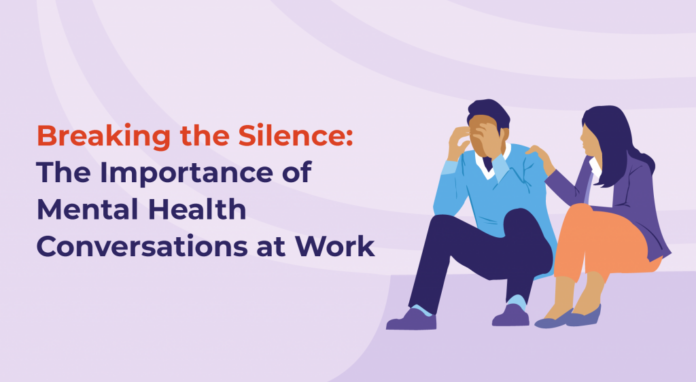Mental health is as essential as physical health in today’s fast-paced working world. And yet, according to a recent survey conducted by the National Alliance on Mental Illness (NAMI), a disturbing truth is revealed—many employees are reluctant to discuss their mental health at the workplace. Even with increasing awareness, stigma about mental health in the workplace continues to be a significant impediment.
Why Employees Remain Silent.
The work environment can be a stressful place, and most employees are afraid that discussing mental health issues will affect their career advancement or their relationships with their co-workers. Fears of being labeled as weak, discriminated against, or even losing job prospects often deter individuals from seeking help.
The NAMI survey points out that although businesses have come a long way in recognizing mental health, workers still don’t feel completely comfortable talking about it. This hesitation isn’t merely an individual challenge—it’s a business problem that impacts productivity, engagement, and overall health.
The Cost of Silence.
When staff believe that they need to conceal their mental illness, it may result in burnout, lower productivity, and even increased turnover. Stress and tension if not addressed may affect decision-making, collaboration, and motivation, consequently affecting the organization as a whole.
A culture of silence concerning mental health also implies that staff might not make use of the resources they have. Most organizations provide Employee Assistance Programs (EAPs) or mental health days, yet if staff feel unsafe accessing them, the efforts become futile.
Creating a Supportive Workplace.
Employers are key to establishing a workplace culture that encourages employees to feel at ease discussing their mental health. This begins with leadership leading by example—managers and executives who speak openly about mental wellness set the tone to normalize such discussions.
Workplace policies need to do more than provide access; they must also actively support the use of resources without fear of stigma. Even small things, like manager mental health training, confidential counseling options, and emphasizing work-life balance, can be a real help.
The Path Forward.
Shattering the stigma over mental health in the workplace takes ongoing effort. Workers must be made to understand that asking for help is a badge of honor, not a sign of weakness. By encouraging open talk and offering genuine support, corporations can make workplaces where individuals feel valued—no longer only for productivity but also for well-being.
Mental health must never be a forbidden subject. The more we discuss it, the better we can create workplaces that actually nurture their employees—body and mind.





